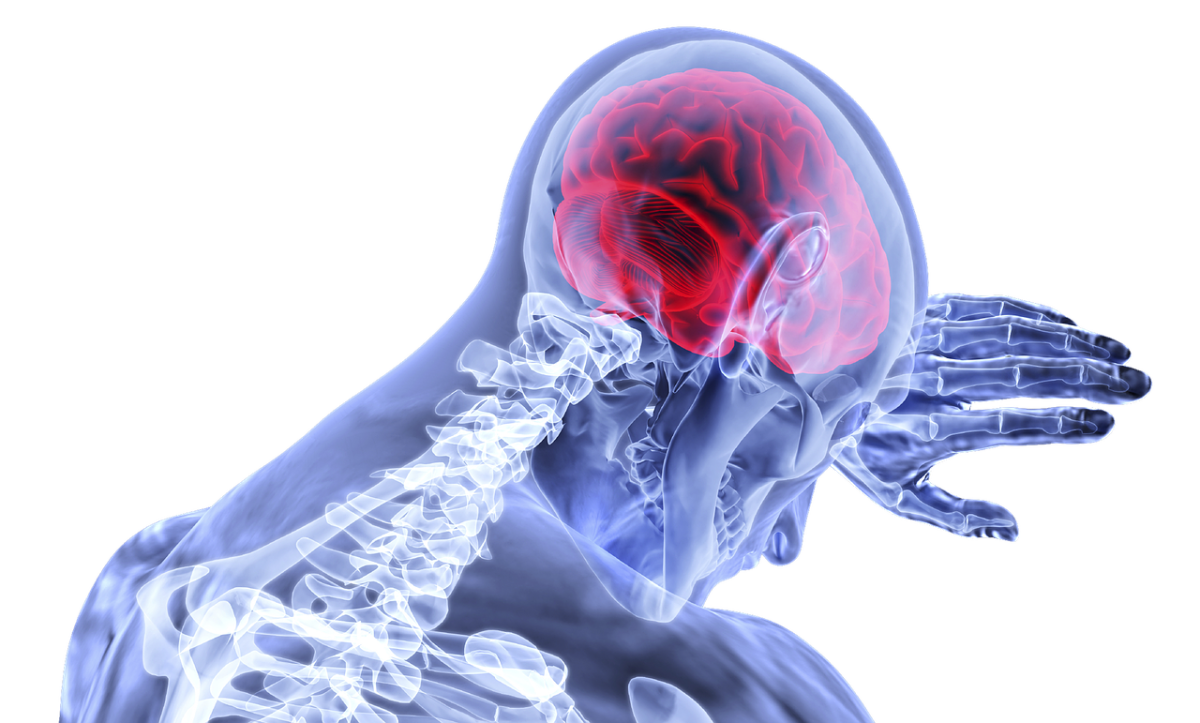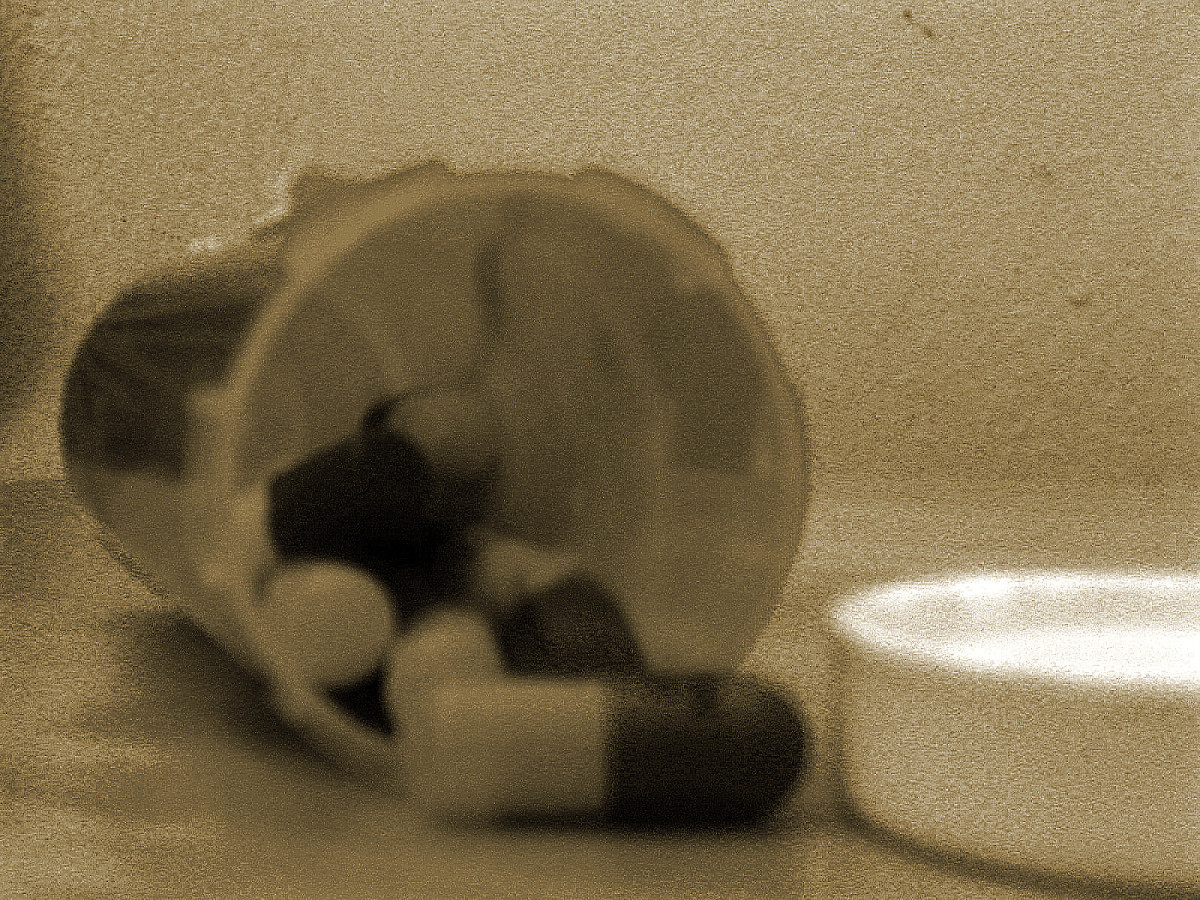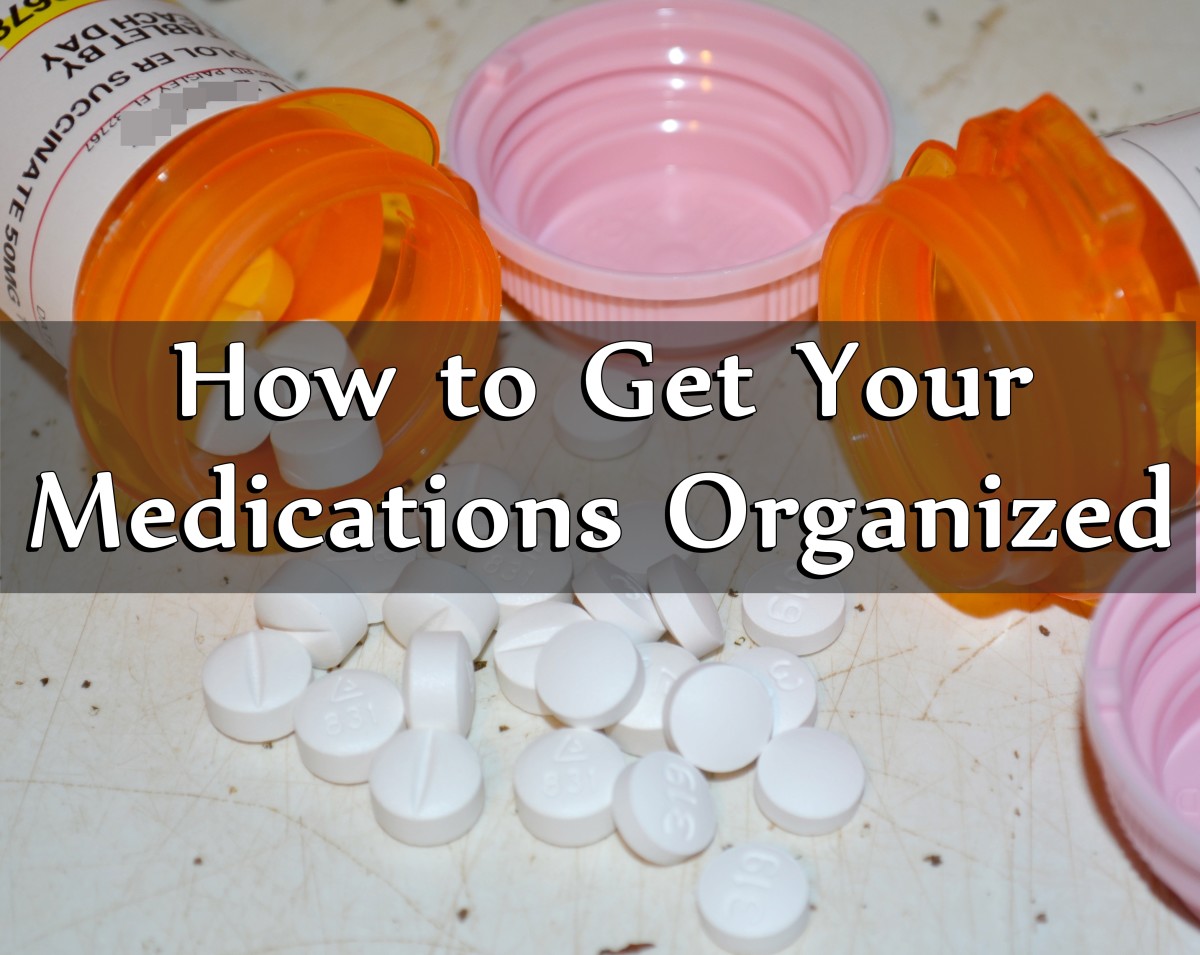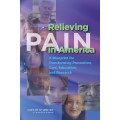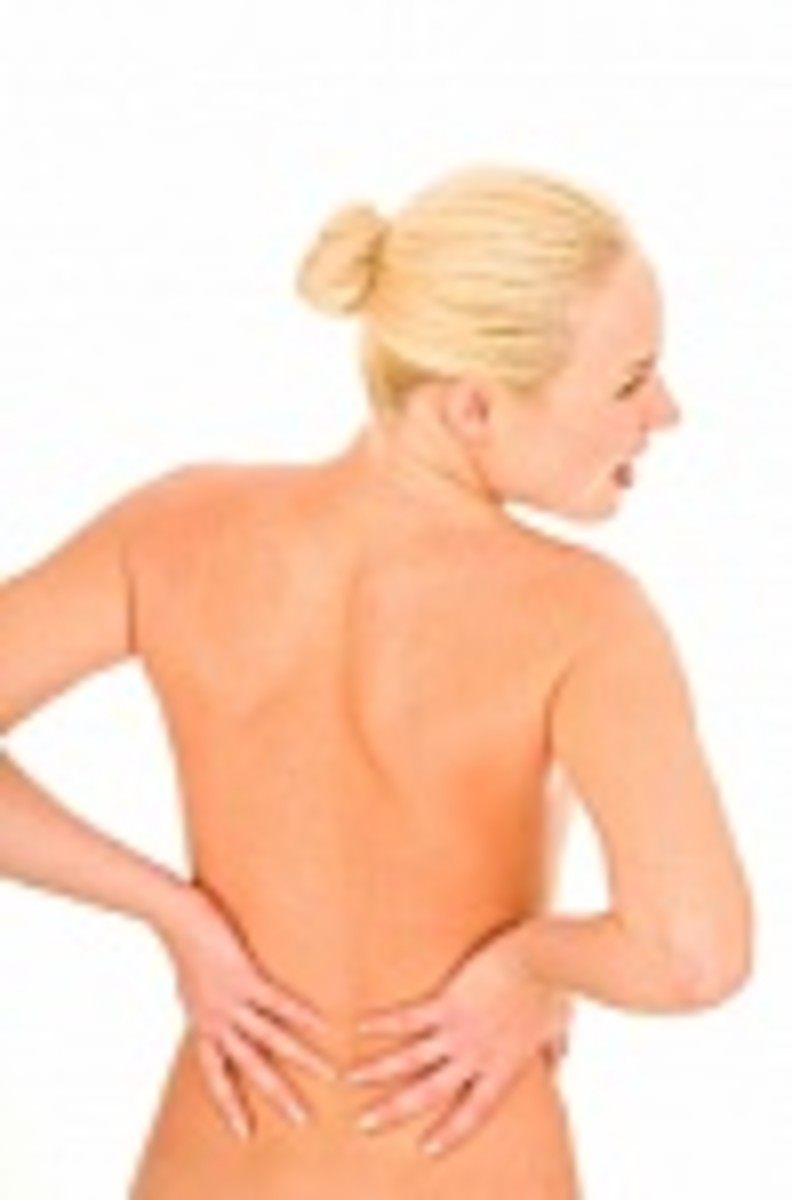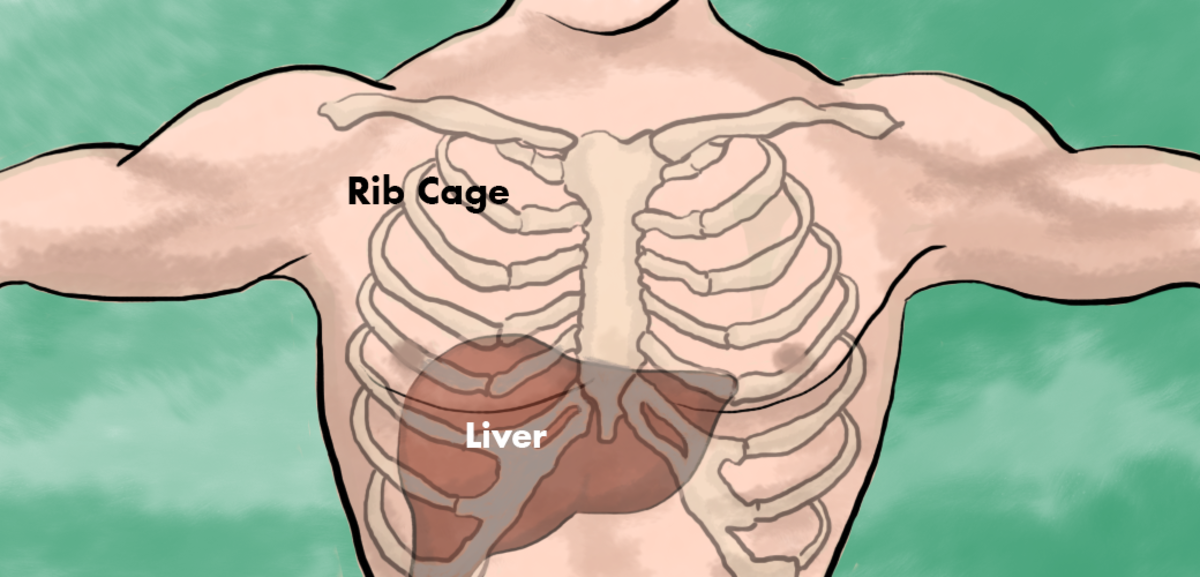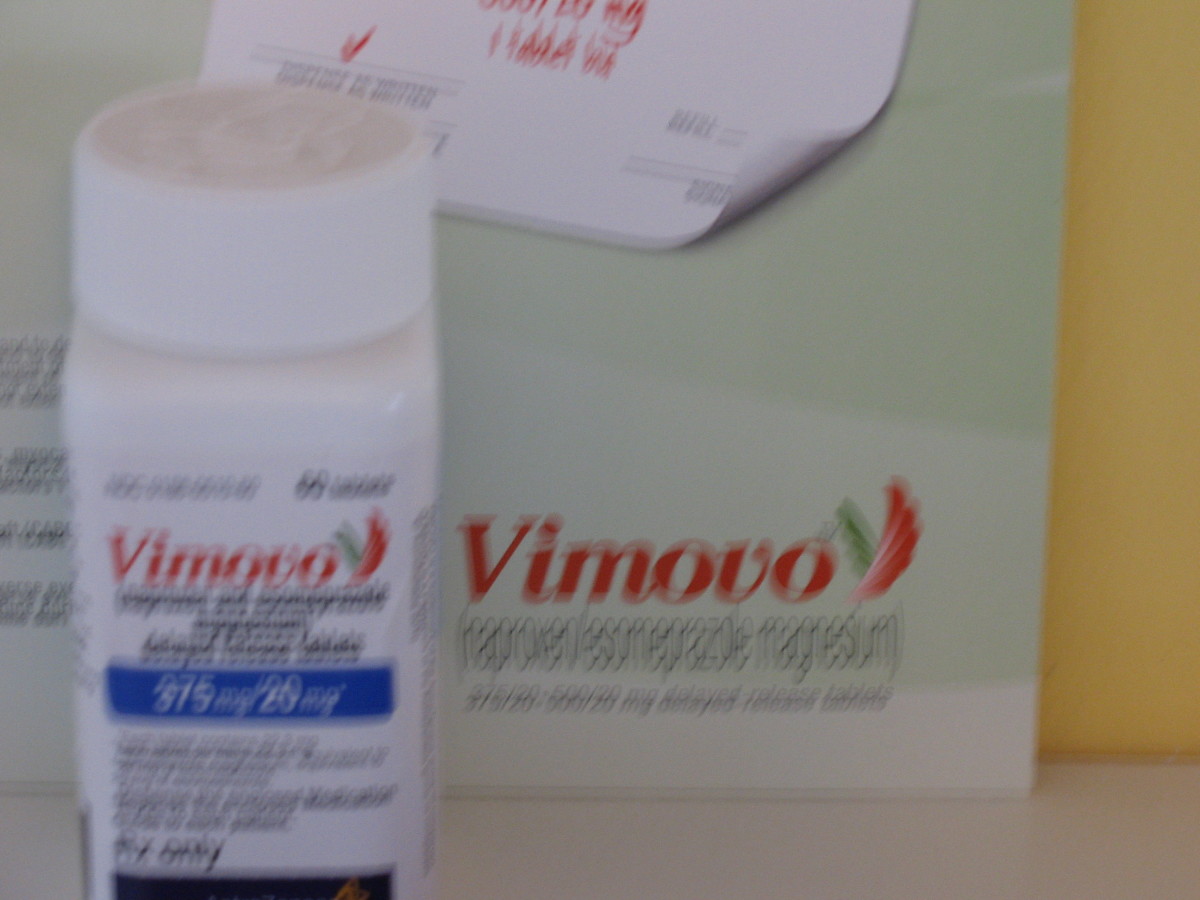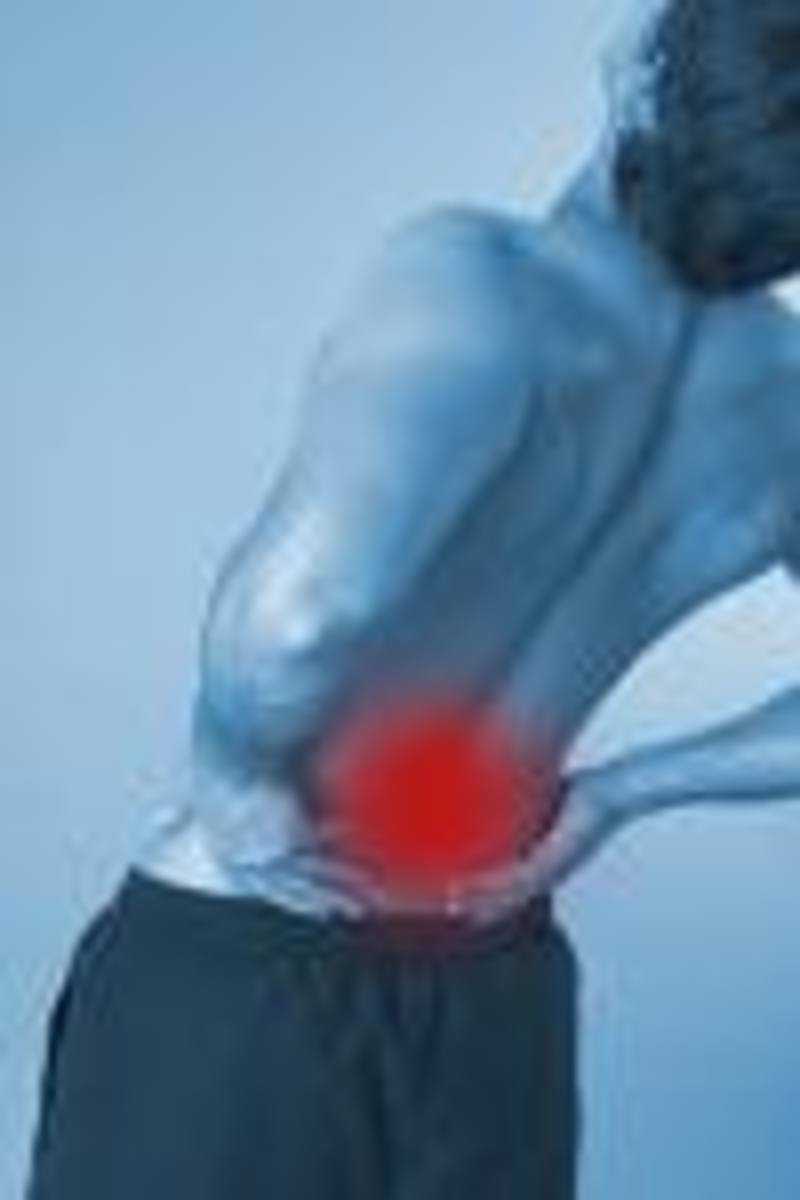Using Strong Prescription Medication For Chronic Pain
This hub focuses on the use of prescription painkillers to relieve chronic pain. Chronic pain is physical pain which lasts a long time, and may or may not be associated with a particular injury or illness. I will write from personal experience and from my research.
I suffer from severe back pain. I tried many alternative treatments, and many medical treatments. None relieved the pain, or even brought it down to a manageable level. In this hub I am going to write generally about the decision to take strong painkillers, and I hope to write another about specific medications I have used for pain, and my experiences with them.

Making the decision
Once you have come to the place where nothing is working, and the pain has drastically limited your life, strong painkillers may be your solution. This was a difficult decision for me, because I have always wanted a natural lifestyle. I birthed both my children naturally, and did not feel I wanted or needed painkillers for either birth. I have been told I have a high pain threshold, and since over 90% of women take some type of pain medication during labor, this is probably correct. But the severity of the back pain was too much for me. If I had a thyroid condition or high blood pressure, I would take the medication necessary to continue my life, and chronic pain is also a medical condition. Also, I am a Christian, and I believe God filled the earth with substances that have a powerful effect on the human body (including a heck of a lot of plants with powerful painkilling properties) so that we would use them. These painkillers have made me able to attend my son’s games and my daughter’s plays, and to return to work, albeit on a part time basis. In short, painkillers have made me more, not less, functional.
Be proactive when dealing with doctors
I found doctors did not freely give information even when asked directly, though they would admit that I was correct once I went ahead and did something, and reported the result. From my experience, doctors think a good deal about covering themselves, and the stories of people harmed by prescription painkillers are many. A doctor can get into trouble for giving you medication, but they won’t get into trouble for refusing to give you medication. They won’t get into trouble for stonewalling. The system gives doctors a very difficult job, then vilifies, sues, and otherwise torments them when something goes wrong. When dealing with doctors as a pain patient, keep all this in mind.
- Reverse Therapy - BLOG
A Doctor's blog about pain, depression, anxiety and other health issues.
A word about the “A” word
There is all the difference in the world between addiction and dependence. Yes, the body will become dependent on this substance. If the medication is suddenly stopped, the body will go through withdrawal. That does not mean the person is an addict. Addiction takes your life away. It undermines your relationships, damages your ability to be productive, and can even result in personality changes, making a previously honest person into a liar. If, on the other hand, medication gives you your life back, then it is dependence, not addiction. Humans are dependent on all sorts of things: air, water, food, social interaction. We can't function, or even live, without all sorts of substances & experiences. People in social isolation, even if they have their physical needs met, cease to function well. Long term social isolation can even be dangerous, leading to erratic behavior and confused mental processes. This doesn’t mean people are “addicted” to social interaction, but it does mean they are dependent on it to function properly. The issue is managing the things you need to live, and not allowing them to manage you.

A word to the wise - the less said about your medication, the better
Many people are not very understanding about painkillers. Often they are sadly judgmental. Today I read a hub titled “Addicted to Prescription Drugs” and the author wrote in the comments section, “The drugs can become such an important part of their lives. Maybe in her sub conscience she doesn't want to rest, do physio, or have surgery as this will mean making big changes. She is in her routine of full-time work and the pain killers are her coping mechanism.” Unfortunately, many people will assume you take these medications for a non-medical reason – they will think you use them to cope with the stresses of life. And they will put their heads together with others and tsk tsk about how you take painkillers because change is hard for you. While this may seem kind of junior high school, please be aware that this attitude is all too common.
The best way to minimize gossip is to keep your medical information private. By law employers are not allowed to ask. Coworkers have no reason to know. Those of us with physical limitations often feel we owe people an explanation, but we need to remember privacy is our right. Once the information is out, you cannot take it back. Don’t swallow your pills where people are watching, and don’t take out a prescription bottle where it can be seen. I have heard murmured speculation in office situations about whether that bottle someone saw in someone's hand was perhaps antidepressants? Now wouldn’t that explain some things, and yada, yada, yada. The person in question may have been taking thyroid medication to keep her eyes from bugging out, or finishing the antibiotics from her sinus infection, but the sight of the bottle got the toungues wagging and analysing. Personally, I keep my medical information in a small circle, and I tell my trusted few that I don’t want these private details shared. For everyone else, “I have a bad back, I can’t lift that” will suffice. I’ve gotten a few glares, a few snorts from people who assume I’m shiftless, but just imagine what people this insensitive would do with the information that I take a prescription painkiller.
If you or a loved one suffer from chronic pain, you are not alone. This problem is more and more common. Seek support and advice from those who have managed to make the most of life in spite of chronic pain. Turn a deaf ear to those who have not had to live this life. They don't, they can't, understand. Do what you need to do to live the best way you can. Without prescription painkillers, I would not be able to work as a tutor; I would not have spent last Tuesday night helping three intelligent and motivated young ladies parse their way through an essay by Thoreau. This is me enjoying life.
I wish you the best.
More hubs about pain
- Living With Chronic Pain
I suffer from chronic pain, which means that my pain has lasted a long time, and likely will not resolve on its own. I've tried many treatments, none with more than modest success. This hub is about my... - Parenting With Chronic Pain
I have a chronic pain condition which has not responded to a variety of treatments. Chronic pain affects most aspects of your life, including parenting. This hub talks about what I have learned about... - Gokhale Method: Posture and Movement Education
This hub is about my experience with the Gokhale Method of posture and movement education. I found Gokhale Method in my search to solve my problem of chronic pain, but this information would benefit...

